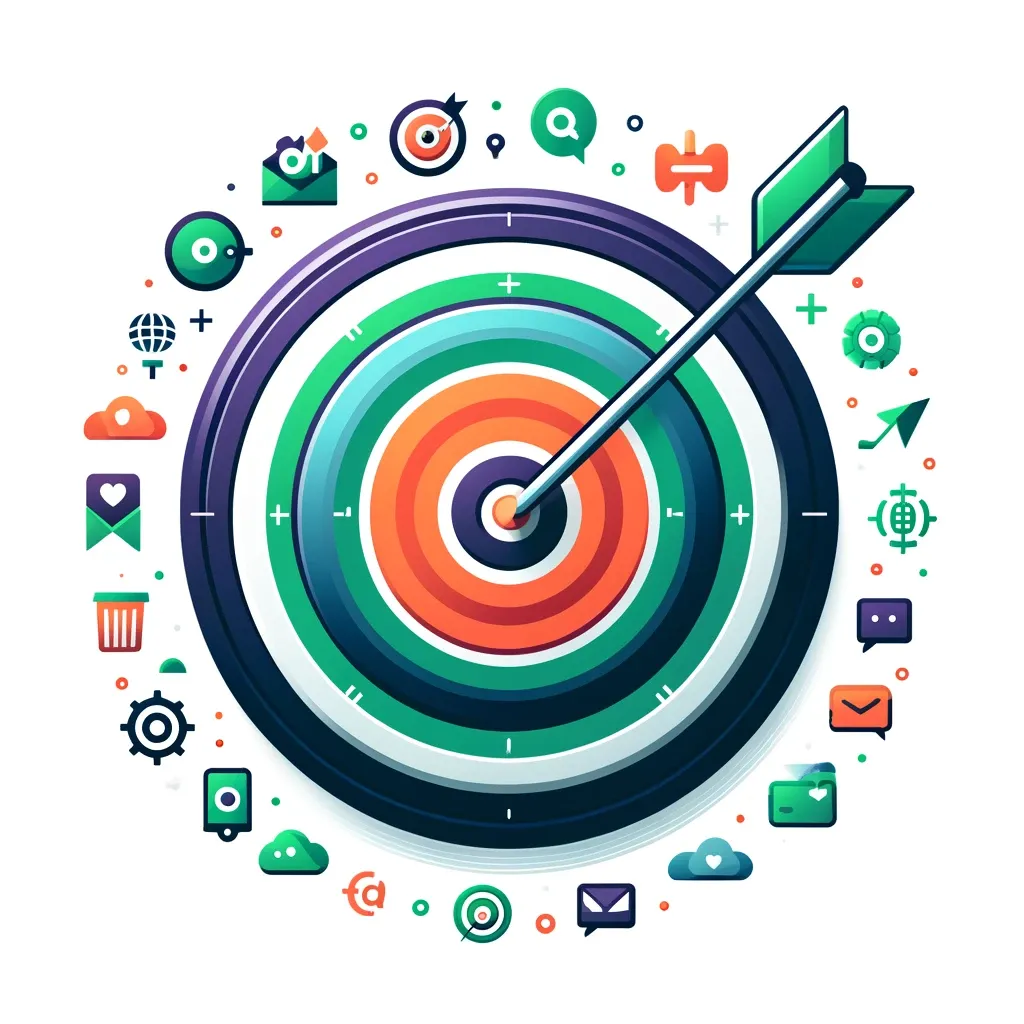Professional Services Digital Marketing
We assist lawyers, doctors, consultants and other professional services clients to develop a comprehensive digital marketing strategy. We implement the appropriate and customized tactics to increase new leads for our professional services clients. Professional services marketing plans vary for lawyers, consultants, and healthcare professionals. There are however some similarities, both within professional services and even with home services, as professional services are generally local and depend on their reputation and referrals from satisfied customers. We develop and implement specific marketing plans that address digital marketing for Lawyers, digital marketing for Consultants, and digital marketing for Healthcare Providers.
Digital Marketing Strategy for Professionals
In today’s competitive landscape, professionals such as lawyers, doctors, and consultants must adopt effective digital marketing strategies to enhance their visibility, maintain client relationships, and establish their expertise. VIEWS incorporates a multi-faceted, integrated digital marketing approach that includes various online platforms and techniques tailored to industry-specific needs.
The Power of Digital Marketing for Lawyers, Consultants and Medical Providers
Digital marketing empowers lawyers, consultants, and medical providers by enhancing their online presence to attract and retain clients efficiently. It leverages tools like SEO, targeted advertising, and social media management to build authority and trust in competitive fields. With a strategic approach, these professionals can transform their expertise into client growth, ensuring measurable success and sustained reputation.

Digital Marketing for Lawyers
Digital marketing for lawyers will focus primarily on local search strategies. Searchers want to find a lawyer close to their home or workplace who is familiar with their required court system, and lawyers typically limit their practice to specific jurisdictions. Searchers also want to know that lawyers are experts in the field that they need help with.
Often, searchers look for legal assistance from lawyers whose content and statements they can relate to. We focus on reaching the searchers who best fit the lawyer’s service area, and ensuring that those searchers will see our clients’ in the most professional and advantageous light.
Digital Marketing for Healthcare Providers
Healthcare services are typically local in nature as well, so we may focus on strengthening our clients’ influence in the local online community and reaching those searching for quality healthcare services in their area. The target audience for healthcare service providers can vary widely, so we develop the right strategies to reach each of the desired personas. Healthcare is also a very individualized and personal service, so automated marketing can be very beneficial in both creating new contacts that those seeking healthcare can require and maintaining the relationship with patients.
Regardless of the type of professional service, we analyze and organize the digital marketing plan into website tactics, marketing tactics, optimization tactics, advertising tactics, and conversion tactics. Here is an overview of a sample digital marketing strategy and the possible tactics for professional services marketing. Primary tactics ensure the client has quality content, interesting multi-media content, and a robust review strategy; these tactics might use brand recognition advertising.
Digital Marketing for Consultants
A consultant’s business relies on reputation, and today, reputation is largely established online, therefore, digital or online marketing is a vital piece of the business strategy for consultants. Of the three professional service providers we focus on, consultants are often able to operate both locally and nationally making an integrated marketing program more critical to their brand.
Consultants can benefit from automation, social media and advertising in addition to SEO.
Digital Marketing vs. Traditional Marketing
In examining digital marketing for professionals, it’s vital to understand how it differs from traditional marketing. Both methods aim to attract and retain clients, but the strategies, costs, and effectiveness can vary greatly.
Brand Reach and Audience Targeting
Online marketing enables professionals to precisely target specific demographics based on location, interests, and behaviors. This targeted approach can yield better client engagement as it allows for tailored messaging:
Segmentation: You can create different campaigns for various segments of your audience.
Analytics: Real-time data provides insights into which strategies resonate most, allowing for quick adjustments.
Conversely, traditional marketing methods—such as billboards, print ads, and direct mail—often have a broad approach, making it challenging to measure their exact effectiveness and reach.
Cost Efficiency
Digital or online marketing typically offers more cost-effective solutions compared to traditional marketing channels.
Lower Costs: Setting up social media campaigns, email marketing, or a website while not inexpensive, often requires significantly less investment than television or radio ads.
Higher ROI: The ability to track performance and refine campaigns in real-time can lead to better returns on investment.
Comparison of Traditional and Digital Marketing
Comparing differences, costs to a company, and average ROI. The data is synthesized from industry trends, expert insights, and available statistics as of March 9, 2025, tailored to your focus on how these methods attract and retain clients for professionals. Costs and ROI are approximate, based on 2024–2025 benchmarks, as exact figures vary by industry, location, and campaign scale.
| Aspect | Traditional Marketing | Digital Marketing |
|---|---|---|
| Key Differences | – Broad Reach: Targets a wide, general audience – Offline Channels: Uses print, TV, radio, and direct mail |
– Targeted Reach: Pinpoints specific demographics and interests – Online Channels: Includes SEO, social media, and email |
| Cost to Company | – High Upfront Costs: – Billboards: $1,200–$15,000/month – TV Ads: $5,000–$500,000 – Print Ads: $500–$20,000 |
– Lower Entry Costs: – Social Media Ads: $1–$3/click – SEO Services: $500–$5,000/month – Email Marketing: Low cost per campaign |
| Average ROI | – Moderate Returns: – General Estimate: $2–$4 for every $1 spent |
– Higher Returns: – General Estimate: $2–$4 or higher for every $1 spent – Trackable via analytics tools |
Detailed Analysis:
Differences
- Brand Reach and Audience Targeting: Traditional marketing casts a wide net, ideal for local brand awareness (e.g., a DC billboard for a law firm) but lacks precision. Digital marketing excels at segmentation—e.g., targeting DC-area homeowners on Facebook for a real estate pro—offering tailored messaging and measurable engagement via analytics.
- Execution: Traditional methods are static and slow to adjust (e.g., reprinting flyers takes weeks), while digital campaigns are agile (e.g., tweaking a Google Ad in hours based on click-through rates).
- Feedback Loop: Digital provides instant insights (e.g., 50% open rate on an email), whereas traditional relies on slower, less accurate methods (e.g., customer surveys post-mailer).
Cost Efficiency
- Traditional Marketing: High initial costs stem from production (e.g., designing a billboard) and placement (e.g., renting highway space). A small campaign might cost $5,000–$10,000, with no flexibility to scale down mid-run. For professionals like lawyers or doctors, TV ads in prime slots can exceed $50,000, per Indeed and WebFX data.
- Digital Marketing: Lower barriers to entry allow testing with minimal budgets (e.g., $100 on LinkedIn Ads). Tools like Canva reduce design costs, and platforms offer pay-as-you-go models (e.g., $1/click on Google). Total monthly spend can range from $100 for small firms to $10,000+ for aggressive campaigns, per Pronto Marketing 2025 benchmarks.
Average ROI
- Traditional Marketing: ROI varies widely. Direct mail’s 4.4% response rate (UPrinting 2025) yields decent returns ($2.20 per $1), but billboards and print ads rely on untrackable impressions, averaging 100–400% ROI for brand-focused campaigns. Posts on X highlight traditional’s enduring punch, especially when timed well.
- Digital Marketing: Offers superior ROI due to targeting and tracking. Email’s $36–$40 per $1 (EmailToolTester 2025) and SEO’s 22:1 long-term gains (CyberOptik) outpace traditional methods. PPC and social media average 180–200% ROI (WordStream), spiking higher with optimization—e.g., a refined campaign for a DC doctor could hit 4200% via email.
Key Takeaways for Professionals
- Cost-Effectiveness: Digital marketing is more accessible for professionals with tight budgets (e.g., a solo consultant starting with $500/month online vs. $5,000 for a billboard). It scales efficiently as clients grow.
- ROI Potential: Digital’s higher ROI suits client acquisition goals (e.g., a lawyer tracking leads from Google Ads), while traditional excels at local visibility (e.g., a dentist’s mailer in DC suburbs).
- Hybrid Approach: Combining both—like a billboard driving traffic to a website—can maximize reach and conversions, leveraging traditional’s tangibility and digital’s precision.
Detailed Analysis
Differences
- Brand Reach and Audience Targeting: Traditional marketing casts a wide net, ideal for local brand awareness (e.g., a DC billboard for a law firm) but lacks precision. Digital marketing excels at segmentation—e.g., targeting DC-area homeowners on Facebook for a real estate pro—offering tailored messaging and measurable engagement via analytics.
- Execution: Traditional methods are static and slow to adjust (e.g., reprinting flyers takes weeks), while digital campaigns are agile (e.g., tweaking a Google Ad in hours based on click-through rates).
- Feedback Loop: Digital provides instant insights (e.g., 50% open rate on an email), whereas traditional methods rely on slower, less accurate methods (e.g., customer surveys, post-mailer).


Cost Efficiency
- Traditional Marketing: High initial costs stem from production (e.g., designing a billboard) and placement (e.g., renting highway space). A small campaign might cost $5,000–$10,000, with no flexibility to scale down mid-run. For professionals like lawyers or doctors, TV ads in prime slots can exceed $50,000, per Indeed and WebFX data.
- Digital Marketing: Lower barriers to entry allow testing with minimal budgets (e.g., $100 on LinkedIn Ads). Tools like Canva reduce design costs, and platforms offer pay-as-you-go models (e.g., $1/click on Google). Total monthly spend can range from $100 for small firms to $10,000+ for aggressive campaigns, per Pronto Marketing 2025 benchmarks.
Average ROI
- Traditional Marketing: ROI varies widely. Direct mail’s 4.4% response rate (UPrinting 2025) yields decent returns ($2.20 per $1), but billboards and print ads rely on untrackable impressions, averaging 100–400% ROI for brand-focused campaigns. Posts on X highlight traditional’s enduring punch, especially when timed well.
- Digital Marketing: Offers superior ROI due to targeting and tracking. Email’s $36–$40 per $1 (EmailToolTester 2025) and SEO’s 22:1 long-term gains (CyberOptik) outpace traditional methods. PPC and social media average 180–200% ROI (WordStream), spiking higher with optimization—e.g., a refined campaign for a DC doctor could hit 4200% via email.
Key Takeaways for Professionals
Cost-Effectiveness
Digital marketing is more accessible for professionals with tight budgets (e.g., a solo consultant starting with $500/month online vs. $5,000 for a billboard). It scales efficiently as clients grow.
ROI Potential
Digital’s higher ROI suits client acquisition goals (e.g., a lawyer tracking leads from Google Ads), while traditional excels at local visibility (e.g., a dentist’s mailer in DC suburbs).
Hybrid Approach
Combining both—like a billboard driving traffic to a website—can maximize reach and conversions, leveraging traditional’s tangibility and digital’s precision.
Reach Your Destination

Define Your Goals and Objectives
Map your journey to get to your destination.
Establishing clear goals is crucial in any marketing strategy. At VIEWS Digital, we think of the objectives as destinations on journey: Get Found, By the Right People and Make Money. Consider what stage you are in and what you want to achieve through digital marketing:

Build Your Brand Visibility
Once you have a clear understanding of your target audience, the next step is to build your brand’s reach and visibility. In today’s competitive environment, establishing a strong online presence is essential for professionals, lawyers, doctors, and consultants. It helps if you can:
- Be visible
- Be memorable
- Be consistent
- Be interesting
Find Your Audience
Identifying and understanding your target audience is one of the cornerstones of a successful digital marketing strategy.
- Demographics: Learn about your audience’s age, gender, geographical location, and professional background.
- Pain Points: What challenges does your target audience face that your services can address?
- Preference: Determine the online platforms where your audience spends most of their time, whether it online or offline.
Understanding your target audience involves more than just knowing their demographics; it requires an in-depth analysis of their behaviors, preferences, and pain points. The key steps to effectively define and understand your audience include:
- Analyze Demographics
- Research Psychographics
- Segment Your Audience
- Communicate Directly to Your Specific Audience
Generate Leads and Nurture to Conversion
Getting Leads to your web property is just the first step. To turn visitors into customers you have to convert them. There are multiple steps and tips to turn visitors into clients but it starts with a landing page. Landing pages are pivotal tools for converting visitors into leads. Ensure your landing pages:
- Focus on a Single Offer: Each landing page should concentrate on one service or offer, minimizing distractions and focusing the visitor’s attention.
- Include Strong Calls-to-Action (CTAs): Prominently place clear and compelling CTAs that encourage visitors to take the next step, whether that’s scheduling a consultation, downloading a free resource, or signing up for a newsletter.
- Utilize A/B Testing: Experiment with different designs, headlines, and CTAs to identify which variations yield the best conversion rates.
Lead Generation: Do you want to attract new clients?
Brand Awareness: Are you looking to enhance your visibility in the community?
Client Retention: Would you like to engage your existing clients more effectively?
Setting SMART objectives – specific, measurable, achievable, relevant, and time-bound – can help guide your marketing efforts.
Check Out Our Work
Proven Success
VIEWS Digital Marketing has worked with many professional services companies over the years and has had many successful campaigns. Read how we have helped other attorneys, consultants or medical professionals.
Professional Services Digital Marketing Case Study

Pack the Right Gear for a Strong Online Presence

A professional website is the cornerstone of any professionals digital marketing strategy. It acts as the primary platform for showcasing services, sharing insights, and driving lead generation. A user-friendly website is crucial for establishing credibility.Key elements of an effective website include:
Responsive Design: Ensuring your website is mobile-friendly to accommodate users on different devices.
User-Friendly Navigation: Facilitating easy access to information with a clear and intuitive layout.
Engaging Content: Providing valuable resources such as articles, case studies, and FAQs that resonate with target audiences. Engaging your audience through a well-optimized website not only enhances your visibility but also drives lead generation and nurtures potential clients towards conversion. Here are several strategies to effectively optimize your website:

SEO is essential to improve the visibility of your website in search engine results. Focus on:
Keyword Research: Identifying relevant keywords that prospective clients might use while searching for services.
On-Page Optimization: Ensuring that your website’s content, meta tags, and images are optimized

Social media platforms are powerful tools for augmenting visibility and engaging with your audience. Choose platforms that align with your audience’s preferences. Here are some effective strategies:
Content Sharing: Share valuable content relevant to your services. This could include articles, case studies, and client testimonials that highlight your expertise and establish trust.
Engagement: Actively engage with your audience by responding to comments and messages. Use polls and questions to prompt discussions and build community.
Regular Posting: Consistency is key. Develop a content calendar to ensure regular updates and avoid long gaps that could lead to losing your audience’s interest.

Save time and increase efficiency with automated email campaigns and lead nurturing workflows.
Implement Lead Capture Forms and Automated communication.
Lead capture forms are essential for collecting visitor information, allowing you to nurture prospects effectively.
Use Automation to Keep in respond and communicate via newsletters, emails and text messages. Keep Customer Data up to date with automation.

Generate immediate leads with highly targeted Google Ads, ensuring you appear at the top of search results when customers need your services most.
Frequently Asked Questions for Professional Services Digital Agency
A top-tier Professional Services digital marketing agency should offer:
- SEO and SEM services to increase visibility and generate qualified leads.
- Content marketing tailored to professionals prospects, such as case studies, reviews, testimonials and credentials.
- Social media management, with a focus on platforms for targeting audience personas.
- Marketing automation and email campaigns to nurture leads effectively and stay in touch with current clients.
- Analytics and reporting to track ROI and optimize performance. The agency should also tailor strategies to your specific industry, goals, and audience.
The agency should use key performance indicators (KPIs) that align with your business goals, such as:
- Cost per lead (CPL): The efficiency of lead generation efforts.
- Conversion rates: From lead to opportunity or sale.
- Website traffic and engagement: Including metrics like bounce rate, time on site, and form submissions.
- Pipeline impact: How many high-quality leads were generated and moved into your sales pipeline. Ensure the agency provides regular reports with actionable insights.
- Other Goals: Based on your company objects.
Effective Professional Services strategies focus on:
- Targeting audience personas based on a granular understanding of their needs and pain points as well as their preferred online destinations.
- Creating relevant content that addresses pain points and builds trust.
- Nurturing leads and customers to maintain a loyal base.
A strong Professional Services Digital Marketing agency should start with:
- A deep discovery phase, understanding your brand values, voice, and goals.
- Creating brand guidelines for content, visuals, and messaging consistency.
- Regular check-ins and approvals to ensure campaigns align with your brand identity and resonate with your target audience. Look for an agency that emphasizes collaboration and transparency throughout the partnership.
During onboarding, a good agency will:
- Conduct a comprehensive audit of your current digital marketing efforts.
- Develop a customized marketing plan based on your business goals, target audience, and industry insights.
- Set clear timelines and deliverables for campaigns and reporting.
- Establish open lines of communication, including a dedicated account manager and regular updates. This phase should set the foundation for a collaborative, results-driven partnership.

VIEWS Content Marketing Solutions Tailored to Your Needs
Leveraging VIEWS content marketing solutions can significantly enhance your digital presence, reinforcing your sales team’s initiatives. We can help your team plan and execute a fully customized digital marketing campaign that emphasizes your market authority and boosts brand awareness.
